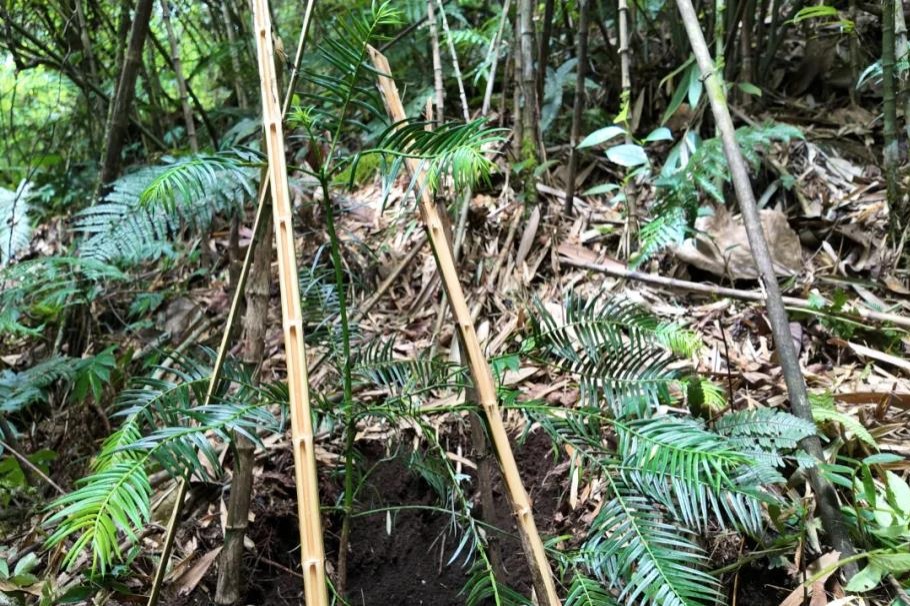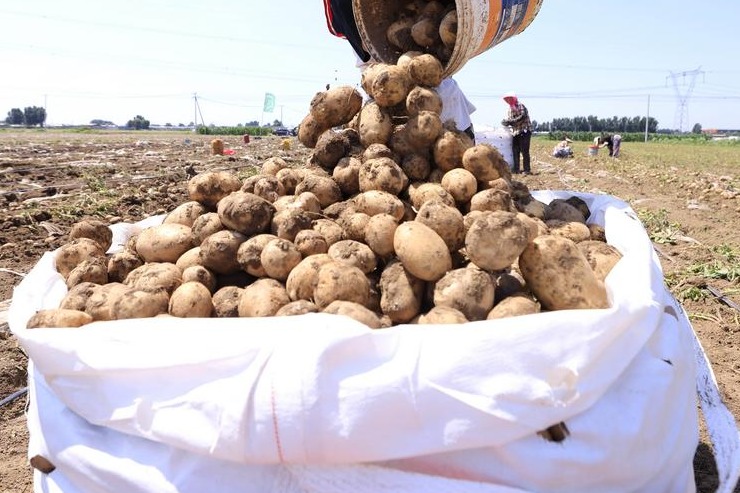Weather is a hot topic
A period referred to as Minor Heat has begun, according to Chinese solar terms, a time when summer builds up its intensity, Deng Zhangyu reports.

As cicadas sing loudly and a scorching sun forces people to stay indoors to keep cool, xiaoshu, or Minor Heat, 11th of the traditional Chinese 24 solar terms, arrives on Thursday with heat and humidity to signify the start of hot days, but not the hottest, in summer.
Rain and thunderstorms are common during this period in northern China, while drought conditions are caused by the sizzling heat in some places in the south. The warmest and dampest period of the year, called sanfu by Chinese people, starts from the time of Minor Heat.
Fu in Chinese means "lying down", a sign that the weather is so hot that it might be better to rest than move around much. As the folk saying goes, the heat during xiaoshu and dashu (the periods of Minor Heat and the following Major heat) will "steam people first and boil them afterward", leading many, as the humorous saying goes, to even stop cooking for themselves.
Animals and insects are also sensitive to the rising temperatures. An ancient Chinese saying goes that when the wind comes with a heatwave, crickets and a few other insects leave the fields and crawl to cooler yards. Eagles fly high in the sky since there's no better way to stay cool than to soar where the temperature is cooler.
Even plants grow rapidly during the hot period. In Yunnan province, for example, mushrooms spring out and mature during xiaoshu. For people in Yunnan, xiaoshu is also a period associated with mushrooms.
"It's the time for food lovers to enjoy a feast of otherwise rarely seen mushrooms," says Dong Hao, a freelancer whose hometown is Tengchong in the southwestern part of Yunnan, a city that proudly boasts its famous termite mushrooms which can only be found in mountainous areas.
Dong says for people who grew up in Tengchong, the first thunderstorm during xiaoshu is special, as it signifies that it's time to dig out the special mushrooms that can only be found in the nests of termites.
After hearing the awakening thunderstorm, people get up in the morning and head out to mountainous areas to locate these mushrooms that grow in the same place every year. It means that once they are found, their location remains a closely guarded secret. So people have their own unique map of termite nests to dig out the seasonal mushrooms.
Dong recalls that it was a big achievement for him to find one termite nest when he was a child and that he would be praised by his parents back then. Regarded as a novelty, termite mushrooms are expensive, so people who find them usually sell them for a good price instead of cooking them at home.
"Nowadays, we can afford these mushrooms. If we go to the food market in Yunnan, we'll see various mushrooms. A feast for our taste buds," says Dong, who now lives in Beijing.
For Yuan Jin, xiaoshu comes with a special fragrance-a mix of gardenia and jasmine. The two flowers are found in eastern and southern parts of the country and quickly go into full bloom after Minor Heat.
Yuan lives in Suzhou, Jiangsu province, and works at a local college. She says when she was a little girl, her mother bought gardenia from street vendors for her as a fashion accessory and hooked the buds onto her hair clips.
Flower vendors are not seen on the streets anymore. But the two flowers can be found in gardens and in the balconies at people's homes. Yuan has planted several pots of gardenia. She says in the old times, young women in Suzhou often put a basket of gardenia and jasmine on their beds to sleep amid the refreshing fragrance.
The tradition of using these flowers as perfume and fashion accessories during xiaoshu can be traced back hundreds of years, she adds.
For many people, xiaoshu is also a time to place their clothes, quilts and beddings out in the sun to prevent mildew and humidity. In ancient times, rich families also put out their collection of books, calligraphy works and paintings under the sun, following the legend that a dragon would bathe its scales in the river.
According to Guo Wenbin, a scholar of the 24 solar terms, ancient Chinese had come up with various solutions to protect themselves from the intense heat that dominates the uncomfortable period.
The roaring temperature often causes fatigue and loss of appetite. People had heat-dispelling food even hundreds of years ago, such as juicy watermelon, bitter gourd, teas and soups.
A popular soup to beat the heat is made of green beans. In traditional Chinese medicine, green beans are thought to be able to dispel heat and toxic substances.
"Ancient Chinese people paid attention to ways to dispel heat and humidity from their bodies. They had soups with lotus seeds, drank tea with lotus leaves and added many herbs to their porridge," says Guo.
Other than making full use of the foods, people also believed that to stay as calm as possible, "stop complaining about the heat and one will feel cool in no time", as an ancient Chinese idiom goes.
"We have to keep a good mood. It's the best way to spend xiaoshu," Guo adds.
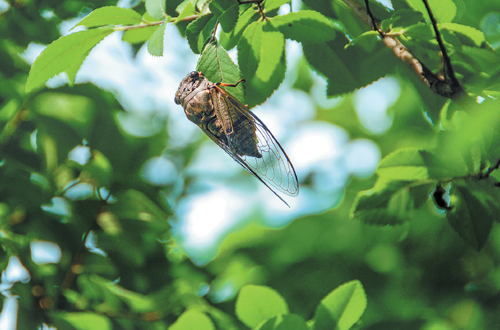
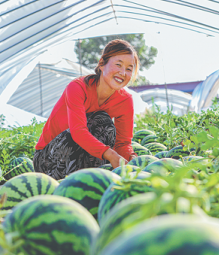
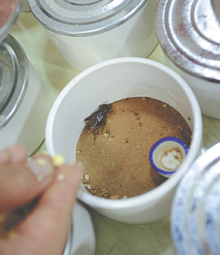
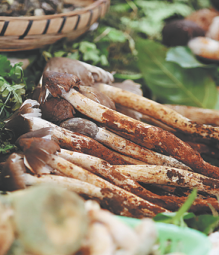
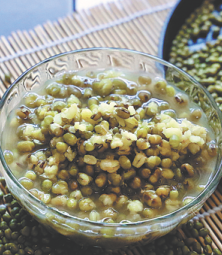
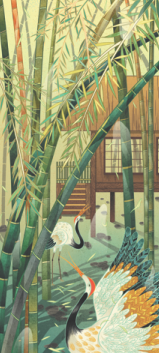
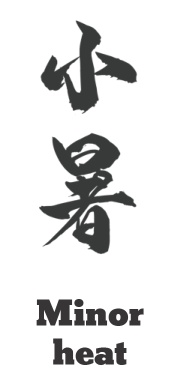
Today's Top News
- War-themed movies teach important lessons
- Xi urges studying, absorbing netizens' opinions in formulating 15th Five-Year Plan
- Yuan eyes greater role among safe-haven assets
- China set to clean up online health content
- China, EU can shape climate governance
- Chengdu gearing up for World Games





















